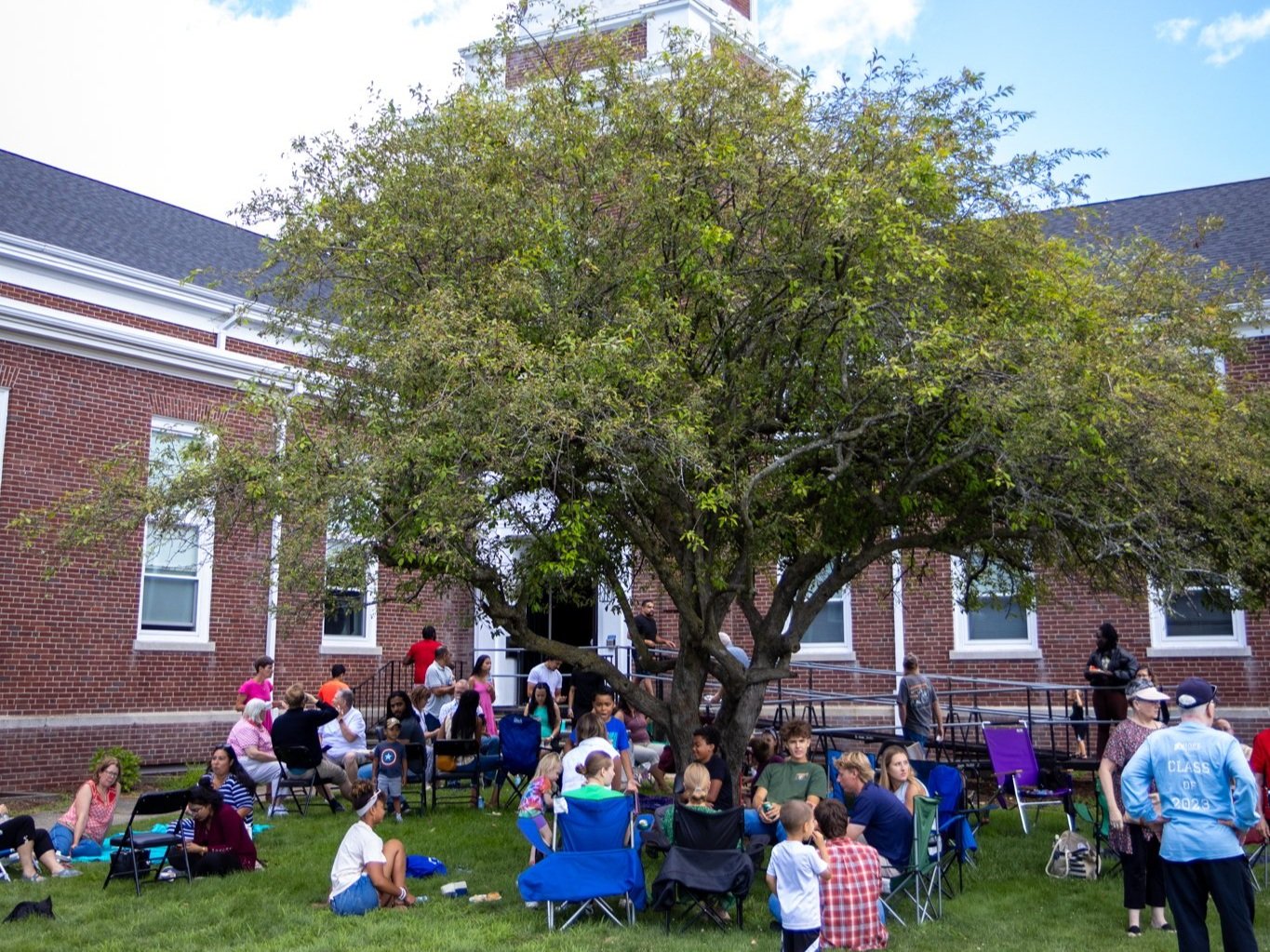New England Perspectives
A regularly updated collection of articles written by New England leaders and thinkers. Looking for news articles? Click here.

How should we think about Israel?
Things are happening so fast in the world, I cannot say for sure what will have changed between when I write this and when you are reading it. We can say that on October 7th, 2023, the profound hatred against Israel by the terrorist organization Hamas has led to the tragic loss of numerous lives. Even here in the United States and throughout Europe, the sentiment towards the State of Israel has changed. Antisemitism is on the rise. How should we think of Israel?

The Days are Evil
“Look carefully then how you walk, not as unwise but as wise, making the best use of the time, because the days are evil.” (Ephesians 5:15-16). Indeed, the days are evil! On October 7th, Hamas’ militants slaughtered over 1300 Israeli civilians (even babies) in a surprise terrorist attack. On October 18th, Lebanon’s Hezbollah held “a day of unprecedented rage” against Israel and the United States. On October 20th, President Biden requested over $100 billion from Congress – not just to support Israel’s fight against Hamas, but also to continue funding for the Ukrainian war effort against Russia and to counter China’s latest hostility toward Taiwan.

Forget about the Back Door
“Pastor,” we heard the conference speaker say, “your front door is the most important, but you can’t forget to pay attention to the back door.” That sounds like good advice, doesn’t it? Growth comes through the front door, but growth is retained by means of the back door. The voice of wisdom might be understood to say that depth of discipleship is best attained by keeping the back door closely guarded. (In case these terms are unfamiliar, the front door refers to people coming to your church for the first time while the back door refers to people quitting your church).

Elder Oversight Gone Right
It’s rare that the concept of elder oversight of church ministries is thought of as a bad thing. Most churches wish they did it better. As it turns out, however, elders overseeing particular church ministries causes more harm than good. Now, before you get too up-in-arms at that statement, hear me out?

Victory in the Battle
As followers of Christ we are faced with many challenges, including difficult or destructive people and circumstances. This is not new to believers. In fact, the early church experienced so many difficulties that the Apostle Paul taught them how to overcome by leaning on the Lord’s strength and taking up His spiritual armor. This same remedy is available to us today.

“See it. Say it. Sorted.”
Many of us know one of the most common phrases heard in the underground of London is “Mind The Gap”. Do you know what the second most common phrase is?
“See it. Say it. Sorted.”

The Early Church’s Strategy of Radical Love
The early church was used by God to transform the world, and they did it extraordinarily quickly. How did this happen? Let’s take a brief look at four means of radical love they used to transform the known world, and glean insights for us today.

The power of R.E.S.T.
During the past few months, I have noticed quite a few pastors that have been blessed with much needed rest through sabbaticals. In March 2022, Barna Research reported that 42% of pastors considered resigning — up from the 29% who did the same in January 2021, according to data collected by Barna. The three biggest reasons clergy cited were “immense stress,” feelings of isolation and loneliness, and “political division,” according to Barna.

The New England Challenge: Multicultural Cities and Multicultural Churches
Within the last few decades, ethnic churches have emerged across New England, dotting the ecclesiastical landscape of its major cities. In noticeable contrast with older established churches with growth profiles that have plateaued, ethnic churches have witnessed significant growth both nationally and throughout New England. This article seeks to rethink our approach and theology for the existence of ethnic churches.

Pastoral Lessons from Titus
Titus is one of the three Pastoral Epistles, written by the Apostle Paul to Titus who filled a sort of pastoral role over a group of churches on the island of Crete. This summer, I preached through the three chapters of the letter to my congregation, and I learned some crucial lessons for pastoral ministry along the way.

Revitalizing the Post-COVID Church in New England: Cultivating Vitality for Multiplication
The global COVID-19 pandemic brought unprecedented challenges to various aspects of human life, behaviors, and relationships. It also messed with religious practices and how people approach services and gatherings. Churches worldwide had to adapt rapidly to new circumstances, finding innovative ways to maintain spiritual connections with their congregations while adhering to health and safety guidelines.

Silent Revival in Vermont
When you are in the middle of the forest, it is difficult to see the overall landscape. That is how it feels sometimes serving in the mission field of Vermont, especially during the recent flooding event.

Committed to New England: Buying a home and a burial plot
In 1994 when Kay and I first moved to New England as missionaries, we served small churches in rural villages in Vermont. Having lived in various cities all of my life, it was quite the culture shock to adjust to ministry in such a different setting. To help me learn how to serve well, I used to meet monthly with Merwyn Borders. Though he was not a native New Englander, Rev. Borders had served in both Massachusetts and Vermont for decades. He loved New England and understood it as well as any “outsider” could.

Scattered
I was sitting on the front lawn of the church I attend a few days ago. We were having a potluck meal and time of connecting after Sunday service amidst the summer season. Two houseguests from overseas had joined me that day and I was sharing about various members of the congregation. Not being shy they had already met and had conversation with others on their own.

Dealing with Difficult People
People can be difficult. We know this because we are people! In all likelihood, you have been a difficult person to someone else at least at some point in your life. Pastoral ministry is no exception to this. In fact, being a pastor probably means you deal with a higher number of difficult people than most. How should we deal with difficult people? Here are a few suggestions borne from experience and failure.

Powered by Christ
This past June, I went on an e-bike tour with my husband and his family in Vermont. It had been years since I’d ridden a bike, but I was reassured that these battery-powered bikes were equipped with speed options and gears that would help us through our four-hour trek.

Using English Classes to Build Relationships for Evangelism
It all began when my wife and I moved to New England at the end of July 2014, we started to reach people through Bible studies, discipleship, and prayer gatherings. We brought a passion from Brazil: Bless Boston! However, it was only when we started to focus on serving our neighbors through a free ESL (English as Second Language) Class as our church plant strategy that things began to happen.

Sitting in the Second Seat: Unique Leadership Dynamics in a Great Cape Cod Church
Rob Neufeld is an associate pastor at CapeFaith Church in Osterville, where Judson Adams serves as senior pastor. CapeFaith is a vibrant and growing church with an interesting leadership dynamic: Rob Neufeld is not only the associate pastor, he is also the father-in-law of the senior pastor, Judson Adams.

Words Worth Repeating
Let’s see if this sounds familiar: “But what if I’m not really saved? The fear of finding out too late that I used the wrong words or didn’t fully understand or committed too little is paralyzing. I should probably pray again, just to be safe.”

Why Immigrants Are Important To Me
Immigration is a hot issue in today’s polarized political climate. Everyone has a list of concerns formed by their own experiences and ideology. I surely can’t hope to address all those concerns, that is a job for someone else. But I am happy to share the reason why I think helping immigrants integrate well into our culture is an important gospel issue.
